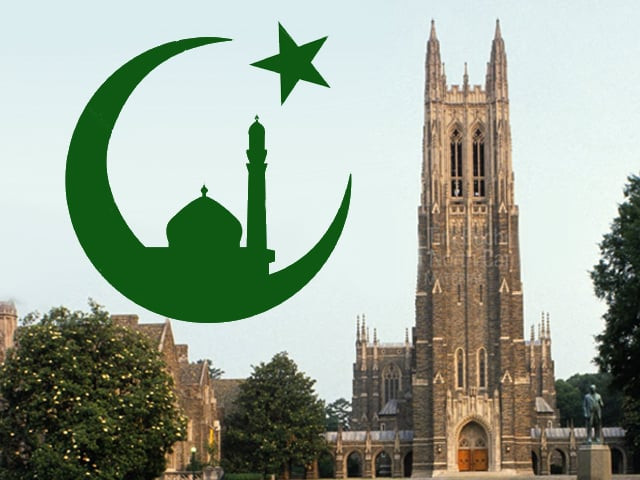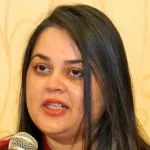On Thursday, January 15, 2015, Duke University reversed one of its policies and cancelled the weekly Muslim call to prayer from the campus chapel. Franklin Graham, president of Samaritan’s Purse and the Billy Graham Evangelistic Association called on donors and the alumni to support this policy by stating,
“As Christianity is being excluded from the public square and followers of Islam are raping, butchering, and beheading Christians, Jews, and anyone who doesn’t submit to their Sharia Islamic law, Duke is promoting this in the name of religious pluralism. I call on the donors and alumni to withhold their support from Duke until this policy is reversed.”
Duke University has a vast number of Muslim students enrolled at the university. In 2008, it became one of the first US universities to hire a Muslim chaplain. Imam Adeel Zeb, current chaplain at Duke University, emphasised on the fact that the university has helped a lot in encouraging students to follow their respective religious beliefs on campus. The university offers Friday prayers in the basement of the chapel and even houses a Centre for Muslim Life on campus. Because the university seemed so welcoming of different people practising different faiths on campus, the Muslim students association acquired permission for the regular service of the prayer call every Friday.
Many students and faculty members supported the decision. For instance, Michael Schoenfeld, vice president for public affairs and government relations, explained that a “serious and credible” security threat was one of the reasons for this policy. In a news release, he said,
“Duke remains committed to fostering an inclusive, tolerant and welcoming campus for all of its students. However, it was clear that what was conceived as an effort to unify was not having the intended effect.”
On the other hand, when Omid Safi, director of Duke’s Islamic Studies Center, was asked about the implementation of the new policy and why the decision was reversed, he said that it was due to “credible threats against Muslim students, faculty and staff’ and that the university was treating this as a “criminal matter”.
However, on Friday, January 16, 2015, the call to prayer echoed across the campus, not through the chapel tower but through a loudspeaker on the chapel’s steps.
The call was acknowledged by hundreds of students and faculty members, Muslims and non-Muslims, who had gathered on the lawn outside the campus chapel to listen to the prayer call and demonstrate their objection to the reversal of policy. Students were seen demonstrating in harmony, holding signs which read, “Let us worship together” alongside symbols of Christianity, Judaism and Islam. A speaker present within the crowd explained the importance of the call to prayer to people, while others passed around an English translation of the call to people passing by. When the speaker would chant “Allah o Akbar”, the crowd would quiet down in respect.
I think this action by the student association at Duke should be greatly applauded. Every person has a right to practise their faith and beliefs. Just because the whole Muslim community is negated on a global level, and is blamed for every alleged ‘terror’ incident, does not give the university the right to stop people from practising their respective religious beliefs. The only time it becomes as issue is when they try to impose that religion on others, which has never been reported.
On the contrary, the Evangelistic Association was trying to do what Islam is blamed to be practising – imposing the religion on people, by hook or by crook. They complained that the university was promoting Islam and not Christianity, stating that “Christianity was being excluded”. That, in my opinion, is where the problem lies. Till date, no student had complained about Muslims trying to “convert” them or trying to impose their religion onto people. No Muslim student complained about their religion being “excluded”. All they did was practise their religion with fellow Muslims in ‘peace’, something which comes across as a shock for many around the world.
How was the call to prayer affecting or hurting the students?
Was it brainwashing them into converting to Islam?
Was it a secret, decoded message for the Muslim students to come and plot terror attacks against the university and its attendees?
Believing the world’s – or even one person’s – perception of a religion and blaming and punishing an entire student body for it is unfair.
The fact that the university complied, under pressure from the group, is testament to their policies. This incident does nothing but highlight the religious divisions present at Duke University. If the non-Muslim students attending the university do not have a problem with the Muslim call to prayer, and are willing to stand in solidarity with them, then why does the administration feel the need to create a dichotomy in this example of peaceful coexistence?
The students hope their efforts will create understanding among all the student religious councils and hence support religious pluralism on campus. Many non-Muslim students also showed their support for their Muslim friends by coming to the campus lawns on Friday holding a poster which read “Duke Divinity supports you”.
This is the example we should be setting for current and future generations – an example of coexistence, respect for all religions, harmony and understanding. Perhaps it is time we let the students of Duke University rule the world – at least we will be able to coexist in harmony.



COMMENTS
Comments are moderated and generally will be posted if they are on-topic and not abusive.
For more information, please see our Comments FAQ